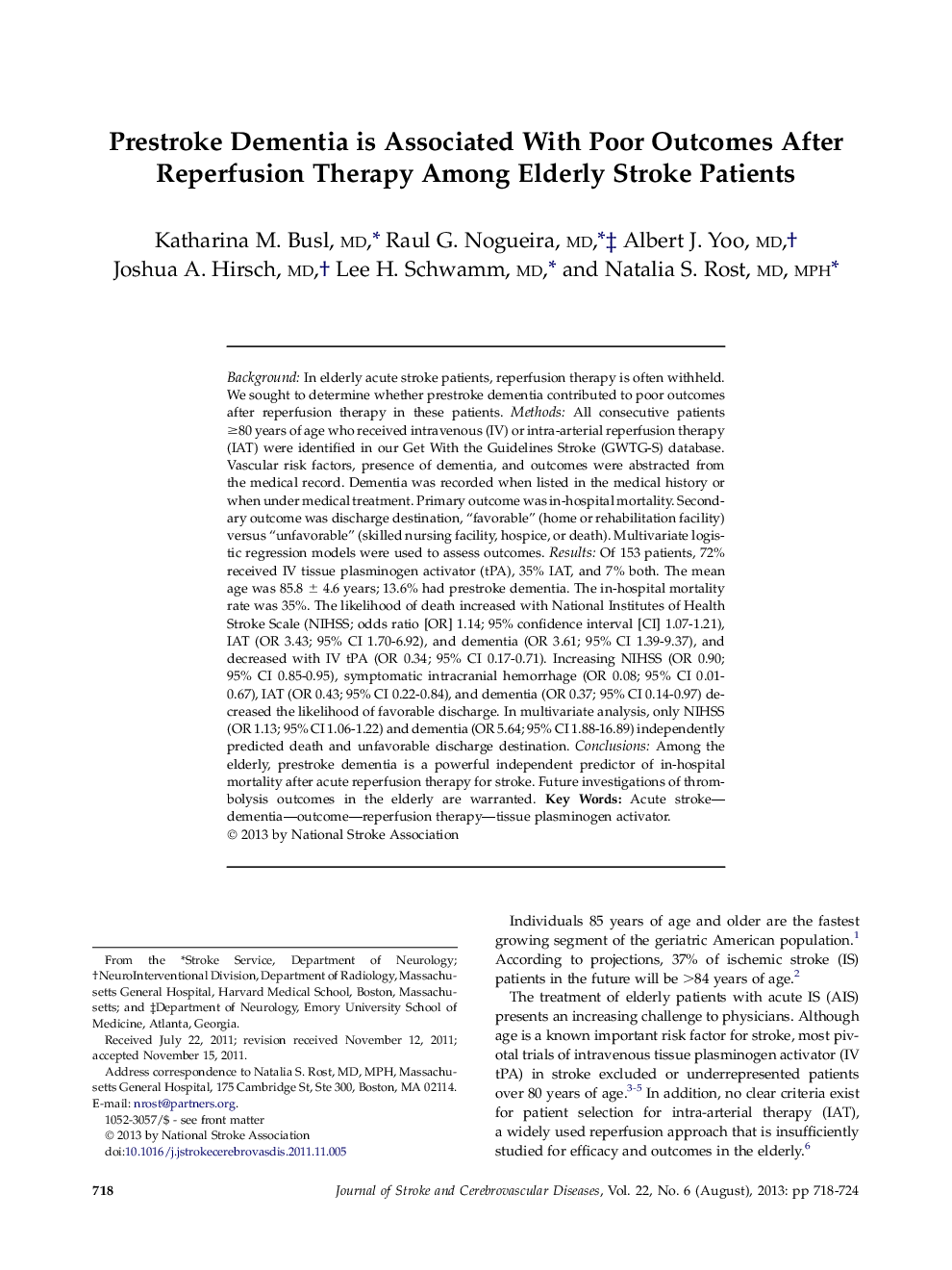| Article ID | Journal | Published Year | Pages | File Type |
|---|---|---|---|---|
| 2706324 | Journal of Stroke and Cerebrovascular Diseases | 2013 | 7 Pages |
BackgroundIn elderly acute stroke patients, reperfusion therapy is often withheld. We sought to determine whether prestroke dementia contributed to poor outcomes after reperfusion therapy in these patients.MethodsAll consecutive patients ≥80 years of age who received intravenous (IV) or intra-arterial reperfusion therapy (IAT) were identified in our Get With the Guidelines Stroke (GWTG-S) database. Vascular risk factors, presence of dementia, and outcomes were abstracted from the medical record. Dementia was recorded when listed in the medical history or when under medical treatment. Primary outcome was in-hospital mortality. Secondary outcome was discharge destination, “favorable” (home or rehabilitation facility) versus “unfavorable” (skilled nursing facility, hospice, or death). Multivariate logistic regression models were used to assess outcomes.ResultsOf 153 patients, 72% received IV tissue plasminogen activator (tPA), 35% IAT, and 7% both. The mean age was 85.8 ± 4.6 years; 13.6% had prestroke dementia. The in-hospital mortality rate was 35%. The likelihood of death increased with National Institutes of Health Stroke Scale (NIHSS; odds ratio [OR] 1.14; 95% confidence interval [CI] 1.07-1.21), IAT (OR 3.43; 95% CI 1.70-6.92), and dementia (OR 3.61; 95% CI 1.39-9.37), and decreased with IV tPA (OR 0.34; 95% CI 0.17-0.71). Increasing NIHSS (OR 0.90; 95% CI 0.85-0.95), symptomatic intracranial hemorrhage (OR 0.08; 95% CI 0.01-0.67), IAT (OR 0.43; 95% CI 0.22-0.84), and dementia (OR 0.37; 95% CI 0.14-0.97) decreased the likelihood of favorable discharge. In multivariate analysis, only NIHSS (OR 1.13; 95% CI 1.06-1.22) and dementia (OR 5.64; 95% CI 1.88-16.89) independently predicted death and unfavorable discharge destination.ConclusionsAmong the elderly, prestroke dementia is a powerful independent predictor of in-hospital mortality after acute reperfusion therapy for stroke. Future investigations of thrombolysis outcomes in the elderly are warranted.
